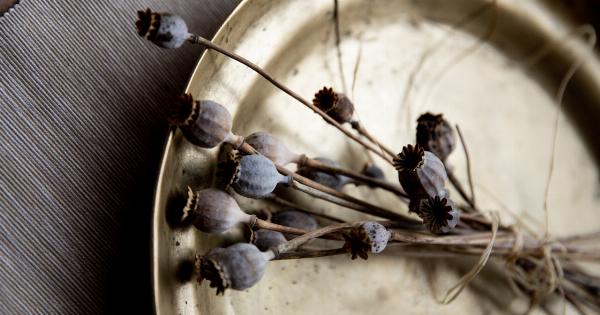Head and cervical cancers are among the most common types of cancer that can affect the human body. They can be caused due to various factors such as exposure to harmful chemicals, poor lifestyle habits, infections, and genetic mutations.
Traditional treatments for these cancers can be grueling and come with numerous side effects including hair loss, nausea, vomiting, fatigue, and more. However, in recent times, herbal medicine has emerged as a powerful alternative to treating these cancers.
What is Herbal Medicine?
Herbal medicine, also known as phytotherapy, is a form of medical practice that makes use of plant extracts to create natural remedies that can help alleviate various health issues.
These plant extracts contain bioactive compounds such as flavonoids, alkaloids, and terpenoids that possess anti-inflammatory and antioxidant properties. They can help inhibit the growth of cancer cells and promote healthy cell regeneration.
Recent Advances in Herbal Medicine for Head and Cervical Cancer
Herbal medicine has been used for centuries to treat various diseases and ailments. In recent times, several herbs have been found to have potent anticancer properties that can help fight head and cervical cancer.
Some of the latest advances in herbal medicine for head and cervical cancer include:.
1. Turmeric
Turmeric is a common spice used in Indian and Middle Eastern cuisines. It contains an active ingredient called curcumin that has powerful antioxidant and anti-inflammatory properties.
Studies have shown that curcumin can help inhibit the growth of cancer cells and prevent them from proliferating. It is believed that curcumin can also help prevent the spread of cancer cells to other parts of the body.
2. Green Tea
Green tea is a popular beverage that is consumed all over the world. It contains a bioactive compound called EGCG (epigallocatechin gallate) that has potent anticancer properties.
Studies have shown that EGCG can help inhibit the growth of cancer cells and induce apoptosis (programmed cell death) in cancer cells. Green tea is also believed to have anti-inflammatory and antioxidant properties that can help prevent the development of cancer.
3. Ginger
Ginger is a root that is commonly used in Asian and Indian cuisines. It contains an active ingredient called gingerol that has potent anti-inflammatory and antioxidant properties.
Studies have shown that gingerol can help inhibit the growth of cancer cells and induce apoptosis in cancer cells. Ginger is also believed to have the ability to strengthen the immune system, which can help the body fight cancer.
4. Garlic
Garlic is a common herb used in various cuisines across the globe. It contains a bioactive compound called allicin that has potent antioxidant and anti-inflammatory properties.
Studies have shown that allicin can help inhibit the growth of cancer cells and prevent them from proliferating. It is believed that allicin can also help prevent the spread of cancer cells to other parts of the body.
5. Milk Thistle
Milk thistle is a herb that has been used for centuries to treat various liver diseases. It contains an active ingredient called silymarin that has potent antioxidant and anti-inflammatory properties.
Studies have shown that silymarin can help inhibit the growth of cancer cells and induce apoptosis in cancer cells. It is also believed that silymarin can help protect the liver from the harmful effects of chemotherapy and radiation therapy.
6. Ashwagandha
Ashwagandha is a herb that has been used in Ayurvedic medicine for centuries to treat various ailments. It contains active compounds called withanolides that have potent anti-inflammatory, antioxidant, and anti-cancer properties.
Studies have shown that ashwagandha can help inhibit the growth of cancer cells and induce apoptosis in cancer cells. It is also believed that ashwagandha can help boost the immune system and reduce the side effects of chemotherapy and radiation therapy.
7. Reishi Mushroom
Reishi mushroom, also known as lingzhi mushroom, has been used for centuries in traditional Chinese medicine to treat various ailments. It contains an active compound called polysaccharides that has potent antioxidant and anti-cancer properties.
Studies have shown that polysaccharides can help inhibit the growth of cancer cells and induce apoptosis in cancer cells. Reishi mushroom is also believed to have the ability to boost the immune system and reduce the side effects of chemotherapy and radiation therapy.
8. Astragalus
Astragalus is a herb that has been used in traditional Chinese medicine for centuries to boost the immune system. It contains active compounds called astragalosides that have potent antioxidant and anti-cancer properties.
Studies have shown that astragalus can help inhibit the growth of cancer cells and induce apoptosis in cancer cells. It is also believed that astragalus can help boost the immune system and reduce the side effects of chemotherapy and radiation therapy.
9. Graviola
Graviola, also known as soursop, is a fruit that is native to South America. It contains active compounds called acetogenins that have potent anti-cancer properties.
Studies have shown that graviola can help inhibit the growth of cancer cells and induce apoptosis in cancer cells. It is also believed that graviola can help boost the immune system and reduce the side effects of chemotherapy and radiation therapy.
10. Cat’s Claw
Cat’s claw is a vine that is native to South America. It contains active compounds called alkaloids that have potent anti-cancer properties.
Studies have shown that cat’s claw can help inhibit the growth of cancer cells and prevent them from proliferating. It is also believed that cat’s claw can help boost the immune system and reduce the side effects of chemotherapy and radiation therapy.
The Bottom Line
Herbal medicine has emerged as a powerful alternative to traditional treatments for head and cervical cancer.
The herbs mentioned above have potent anti-cancer properties that can help inhibit the growth of cancer cells and induce apoptosis in cancer cells. They can also help boost the immune system and reduce the side effects of chemotherapy and radiation therapy.
If you are considering herbal medicine for treating head and cervical cancer, make sure to consult a qualified healthcare professional before starting any treatment.































